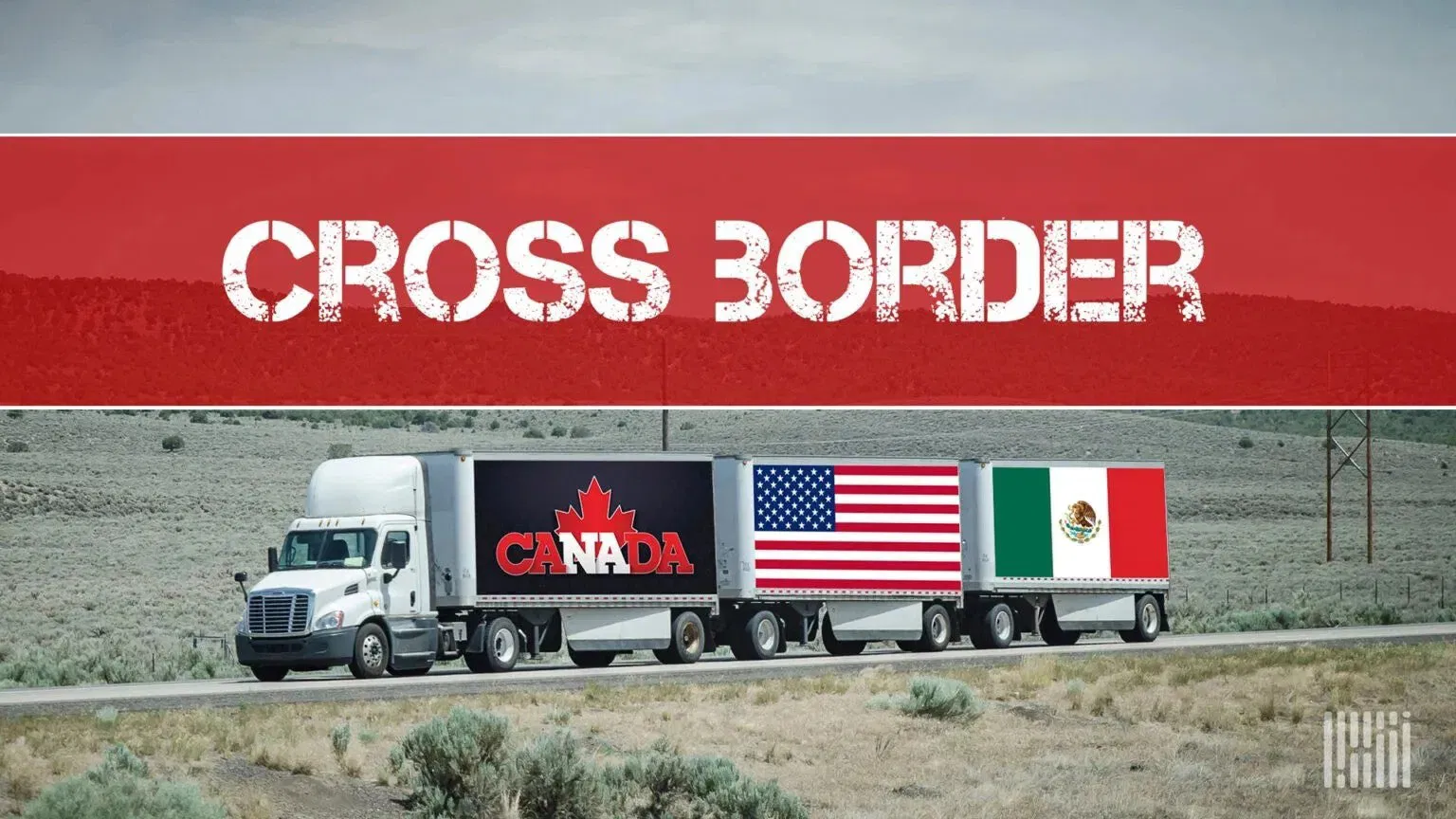Overview of North American Trade
The annual commerce between the U.S., Mexico, and Canada, estimated at over $1.5 trillion, serves as the backbone of the North American economy. As trade relationships evolve, the 미국-멕시코-캐나다 협정(USMCA) plays a crucial role in shaping logistics and transport in the region. With its fifth anniversary approaching in July, discussions surrounding its renegotiation have gained momentum, hinting at developments that could significantly impact trade dynamics.
The Push for Renegotiation
Since assuming the presidency for his second term, there has been an indication from the current administration about a desire to revisit or even terminate the USMCA, an agreement originally celebrated as a monumental economic achievement. The upcoming review, slated for 2026, has prompted Mexican officials to make frequent visits to Washington D.C., signaling the importance of ensuring stability in trade operations.
What’s at Stake?
As the framework of USMCA supports a massive volume of trade, any alterations could set off a ripple effect across various sectors, including logistics. Companies that rely on international shipping and transport must remain vigilant, as any changes could affect cross-border movement and distribution networks.
The Economic Perspective
그리고 CEO of The Nearshore Co., Jorge Gonzalez Henrichsen, suggests that accelerating renegotiations could provide the certainty that investors are desperately seeking. In the wake of administrative uncertainty, investment in Mexico experienced a lull, particularly between late 2024 and early 2025. Revamping the agreement could encourage firms to consider Mexico more seriously for operations, which in turn could alter the landscape for logistics providers across the board.
Record-breaking Trade Values
Recent statistics reveal Mexico has emerged as the top U.S. trading partner, leading to a striking total estimated at $840 billion. Canada follows as the second largest with trade valued at $761 billion. Such figures underscore the vast economic interdependence that exists among these nations, spotlighting the significance of logistics pathways that facilitate this exchange.
Transformations Under USMCA
Shifts in the regulations from the North American Free Trade Agreement (NAFTA) to USMCA brought substantial changes, particularly within the automotive sector. The previous content requirements for automobiles jumped from 62.5% 에 75%, necessitating a larger portion of vehicle parts to be sourced from within North America.
Labor Rights and Compliance
Amendments to labor rights reflect a strengthening of worker protections within Mexico, which essentially boost compliance for companies looking to operate in Mexico. This is particularly relevant as labor costs in the north continue to rise, presenting an opportunity for U.S. companies to consider nearshoring as a viable solution.
Infrastructure Challenges Ahead
Despite the potential for growth through renegotiation, challenges like inadequate infrastructure and security persist in Mexico. Henrichsen emphasizes that a collaborative effort among the three nations could enhance logistics efficiency. For instance, improved infrastructure would streamline cross-border movements, fostering a more resilient supply chain.
The Vision for the Future
Ideally, Henrichsen envisions three countries working symbiotically to bolster trade efficiency. An integrated approach to optimize logistics and supply chains could yield significant benefits for all parties involved.
New Developments in Manufacturing
TYW Manufacturing’s New Facility
In a significant move, China-based TYW Manufacturing has launched a $50 million plant in Irapuato, Mexico, generating around 500개의 일자리. This facility will cater to major automotive brands, producing components aimed at markets in South Korea and the U.S., thereby strengthening regional manufacturing capabilities.
Humanscale Expands Operations
Humanscale, a high-end office furniture manufacturer, recently completed an expansion in Nogales, Mexico, worth $30 million. This move creates 300 jobs and demonstrates that U.S. companies are taking advantage of competitive labor costs closer to home.
New Cold Storage Facility
Additionally, a fresh produce cold storage warehouse is being established along the Texas-Mexico border to tackle the increasing demand for cross-border produce distribution. With features like high-efficiency loading docks, this facility will ease the congestion in the logistics of fresh produce, which is vital as 65% of the nation’s fresh produce imports come from Mexico.
무역 및 물류에 대한 최종 생각
The evolving climate surrounding USMCA indicates that while the implications may not have a sweeping global impact, they are undeniably vital for North American logistics. A company like GetTransport.com plays a significant role in navigating these complexities by offering flexible, global shipping solutions tailored to diverse transportation needs—from office relocations to large cargo deliveries. Using services like GetTransport.com ensures efficient, cost-effective logistics for personal and business purposes.
In conclusion, the discussions around USMCA’s renegotiation highlight not only the economic significance of North American trade but also the profound influence it has on logistical operations. As businesses straddle the challenges of evolving trade agreements, they can find comfort in partnerships that offer transparency and flexibility, like GetTransport.com. This platform empowers users to make informed decisions regarding their logistics needs without incurring unnecessary costs. So for those contemplating their next logistics move, consider leveraging the unique benefits offered by GetTransport.com. For seamless transportation solutions, 차량 서비스 예약하기 오늘 GetTransport.com과 함께하세요!

 USMCA 재협상: 북미 무역 역학 관계에 대한 시사점">
USMCA 재협상: 북미 무역 역학 관계에 대한 시사점">